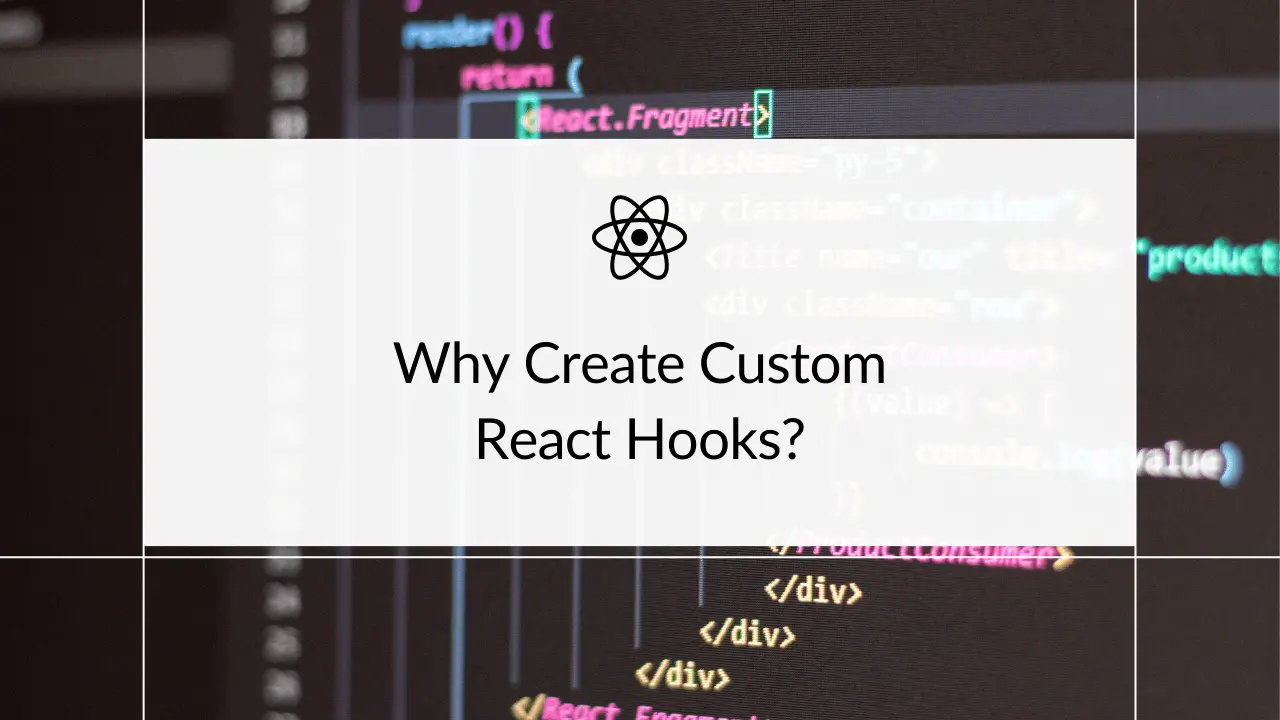
Why Create Custom React Hooks?
react javascript front-end
Custom Hooks in React offer a powerful way to abstract and reuse logic across your components. In this article, I will give you 6 compelling reasons and benefits for creating and using custom Hooks.
- Reusability of Stateful Logic
One of the primary benefits of custom Hooks is their ability to make stateful logic reusable across multiple components. Unlike Higher-Order Components or Props, Hooks don’t add additional layers to the component tree, making them more straightforward to use and test. For example, suppose you have multiple components that must perform the same data-fetching operation. In that case, you can write a useFetch Hook and share this logic across all those components without altering their hierarchy.
- Simplifying Complex Components
Custom Hooks allow you to break down complex logic into smaller, more manageable functions. For example, instead of having a component that handles user inputs, validation, and API calls all in one place, you can split these responsibilities into different Hooks (useInput, useValidation, useFetch), making your main component code more concise and easier to understand.
- Improving Code Readability and Maintenance
Hooks encapsulate functionality outside of the component body, allowing other developers to understand the logic at a glance without digging through the implementation details embedded in the component’s lifecycle methods. This clarity is particularly valuable in large codebases where maintaining clear and manageable code is crucial for collaboration and bug-fixing.
- Simplifying Testing
Testing components that utilize custom Hooks can be more straightforward because you can isolate the Hook’s logic and test it independently from the components. This isolation can lead to more focused and effective unit tests. Since Hooks are just functions, you can invoke them with varying inputs and assert expected outputs without mounting complex component trees.
- Sharable Across Projects
Custom Hooks can be easily extracted and shared across different projects. This portability speeds up development and helps create a consistent approach to solving similar problems in various projects. For instance, a useAuth Hook managing authentication logic can be shared across all your company’s projects that require user authentication.
- Encouraging Good Abstractions
Custom Hooks promotes good coding practices by enabling small, focused functions that do one thing well. This aspect of functional programming in React helps prevent the monolithic components that can occur with class-based approaches where related functionality can become deeply intertwined within lifecycle methods.
Conclusion
The introduction of Hooks into React has revolutionized the management of state and side effects in functional components. Custom Hooks extend this power, providing a modular, easy-to-understand, and reusable way to handle complex functionalities. Whether managing form inputs, fetching data, or incorporating more complex stateful logic, custom Hooks offer a versatile and efficient solution for modern React development.